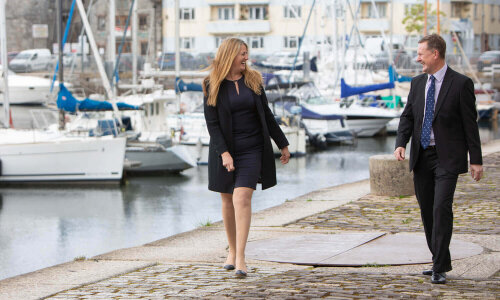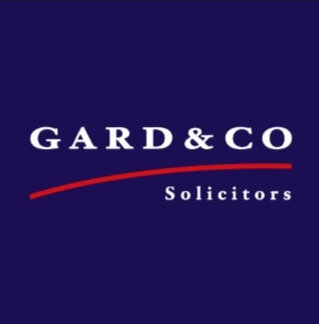Best Car Accident Lawyers in Plymouth
Share your needs with us, get contacted by law firms.
Free. Takes 2 min.
List of the best lawyers in Plymouth, United Kingdom
About Car Accident Law in Plymouth, United Kingdom
Car accident law in Plymouth, as in the rest of England and Wales, governs the rights and responsibilities of individuals involved in road traffic accidents. If you are involved in a car accident, it is essential to understand your legal options, whether you are a driver, passenger, pedestrian, or cyclist. The law covers reporting requirements, compensation for injuries or property damage, liability issues, and insurance claims. Local councils and the police in Plymouth work together to ensure road safety and enforce compliance with the law. Seeking clarity around the legal framework can help you make informed decisions following a collision.
Why You May Need a Lawyer
Legal support can be invaluable after a car accident, particularly in situations where fault is disputed, injuries are severe, or insurance companies are reluctant to pay fair compensation. Some common situations where people in Plymouth seek legal help include:
- Disagreements about who caused the accident
- Serious or long-term injuries requiring ongoing medical care
- Dealing with a driver who is uninsured or underinsured
- When the other driver leaves the scene (hit-and-run)
- Negotiating with insurance companies for compensation
- Making or defending claims for financial losses such as loss of earnings or vehicle repairs
- Filing claims for psychological trauma following the accident
A solicitor experienced in car accident law can explain your rights, help gather evidence, manage negotiations, and represent you in court if necessary. This support increases the chances of a successful outcome and ensures you receive the compensation to which you are entitled.
Local Laws Overview
Car accident laws in Plymouth are governed mainly by national legislation such as the Road Traffic Act 1988, but local practices and resources may also apply. Key aspects include:
- All accidents involving injury or property damage must be reported to the police within 24 hours if not dealt with at the scene
- It is illegal to drive without valid insurance - compensation may be available through the Motor Insurers’ Bureau if the other driver is uninsured
- The law requires every driver to stop and exchange details following an accident
- Personal injury claims involving minor injuries typically have a limitation period of three years from the date of the accident
- Compensation can cover medical expenses, lost income, and vehicle repairs, but claimants must provide sufficient evidence
- The Highway Code provides the rules of the road and is key in establishing liability
Local authorities such as the Plymouth City Council may also provide support services and resources for accident victims. Always keep detailed records following a car accident, as this information will be crucial for any legal action.
Frequently Asked Questions
What should I do immediately after a car accident in Plymouth?
Ensure everyone’s safety, move to a safe location if possible, and call emergency services if anyone is injured. Exchange details with other involved parties and gather evidence such as photos and witness statements.
Do I need to report every car accident to the police?
Not every accident needs to be reported, but if there is injury, property damage, or the other party does not provide their details, you must inform the police as soon as possible and within 24 hours.
Who decides who was at fault?
Fault is determined by the evidence, including statements, witness accounts, and sometimes independent accident reconstruction. Police, insurers, and the courts may all play a role in deciding liability.
Can I claim compensation if the other driver is uninsured?
Yes, claims can often be made through the Motor Insurers’ Bureau, which compensates victims of uninsured or untraced drivers.
How long do I have to make a claim?
You typically have three years from the date of the accident to initiate a personal injury claim. For property damage only, the limitation may vary, so seek legal advice promptly.
What compensation can I claim for?
Compensation can cover medical costs, rehabilitation, lost earnings, pain and suffering, property damage, and any additional expenses arising from the accident.
Will my insurance premiums increase after claiming?
In many cases, making a claim can result in higher premiums, even if you were not at fault. Discuss with your insurer or a solicitor for more details.
Do passengers have the right to claim compensation?
Yes, passengers injured in a car accident can claim compensation regardless of which driver was at fault.
Can I represent myself in a claim?
You can handle minor claims yourself, but for complex cases or serious injuries, having a solicitor improves your chances of a fair settlement.
What if the accident involved a foreign-registered vehicle?
There are special procedures if the other vehicle is foreign-registered. The Motor Insurers’ Bureau and a solicitor can advise you on the best course of action.
Additional Resources
If you are seeking legal advice or information about car accidents in Plymouth, the following resources may be helpful:
- Plymouth City Council - Provides information on road safety and accident reporting
- Devon and Cornwall Police - For accident reporting and investigation support
- The Motor Insurers’ Bureau - Assistance for claims involving uninsured or untraced drivers
- Citizens Advice Plymouth - Free advice on your rights and next steps after an accident
- The Law Society - Help finding a solicitor local to Plymouth with expertise in car accidents
Next Steps
If you have been involved in a car accident in Plymouth, consider taking the following steps:
- Seek medical attention for any injuries, even if they seem minor at first
- Gather evidence including photos, witness details, and official reports
- Report the accident to the police and your insurer as required by law
- Contact a solicitor specialising in car accident claims for a consultation to discuss your rights and possible compensation
- Keep a record of all related expenses and correspondence
Taking prompt action and seeking qualified legal advice will help ensure your interests are protected and increase the likelihood of a fair outcome. If you are uncertain about your next steps, a solicitor or Citizens Advice can provide further guidance specific to your circumstances.
Lawzana helps you find the best lawyers and law firms in Plymouth through a curated and pre-screened list of qualified legal professionals. Our platform offers rankings and detailed profiles of attorneys and law firms, allowing you to compare based on practice areas, including Car Accident, experience, and client feedback.
Each profile includes a description of the firm's areas of practice, client reviews, team members and partners, year of establishment, spoken languages, office locations, contact information, social media presence, and any published articles or resources. Most firms on our platform speak English and are experienced in both local and international legal matters.
Get a quote from top-rated law firms in Plymouth, United Kingdom — quickly, securely, and without unnecessary hassle.
Disclaimer:
The information provided on this page is for general informational purposes only and does not constitute legal advice. While we strive to ensure the accuracy and relevance of the content, legal information may change over time, and interpretations of the law can vary. You should always consult with a qualified legal professional for advice specific to your situation.
We disclaim all liability for actions taken or not taken based on the content of this page. If you believe any information is incorrect or outdated, please contact us, and we will review and update it where appropriate.











